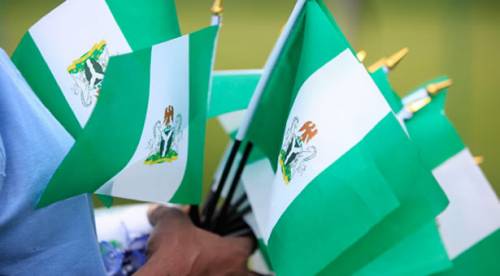As the 2023 elections loom, Nigerians look forward to changes in leadership and membership of the three levels of executive governance as well as state and national legislative assemblies.
The Independent National Electoral Commission (INEC) argues that all Nigerians need do to ensure a better future is obtain a Permanent Voters Card (PVC) and turn up to vote, so their wishes would be carried out, but this simply isn’t true. The candidates presented to the electorate during elections are never the most patriotic or the best aspirants available. As usual, the upcoming polls will be less of an election and more of an endorsement of the candidates presented to voters who were decided by money politics and unpatriotic godfathers. Nigerians are now disenfranchised by means of polluted, convoluted and opaque party internal democratic processes designed to rig out or discourage well-meaning new aspirants in favour of so called “experienced hands who understand how the system works!” Democracy is supposed to be about the power of the ballot, but the refusal to adopt direct primaries and instead favour “consensus candidates” who nobody votes for, makes it abundantly clear that current political leadership isn’t the least bit interested in good governance or the tenets of democracy. This is typified by the recycling of former governors who failed in office and stole their states blind, yet they ended up as “distinguished” Senators of the Federal Republic!
- 132 Nigerians die of Lassa fever within 4 months
- NIGERIA DAILY: “Tremor” In Tinubu’s Camp As Osinbajo Runs For Presidency
Even at the recent APC national convention, the majority of the selected and enthroned top officers of the party are former political office holders previously implicated in massive treasury looting! Intelligent Nigerians have long since concluded that democracy, as practised in their country, is a charade, which entrenches corruption and impedes improvements in standards of governance. As such, the unprecedented apathy at the polls in recent elections in which the majority of registered voters no longer cast their ballot is not surprising. Electioneering for 2023 is about to commence in earnest and Nigerians will be regaled by jamborees in which there will be lots of dancing, music, chanting of inane slogans and blasphemous references to being anointed by God!
Candidates will pretend to have sympathy for the poor, the disadvantaged and the down-trodden, but when elected, will discard their fake, reveal their true character and proceed to wallow unconscionably in the opulence, which Nigerian political office grants, while citizens continue to live in penury. They will subsequently dream up excuses as to why Nigeria must continue to have a polarised society in which the honest majority is extremely poor and underprivileged living in squalor while political appointees are extremely rich and privileged wallowing in luxury at public expense.
More than two decades after the end of military rule, Nigerians are belatedly discovering that their democracy doesn’t afford them any opportunity to actually participate in governance. The fault lies squarely with the disastrous Military Decree for Civilian Administration often referred to as the “1999 Constitution”. The fraudulent, ill-conceived and poorly thought-out document is indisputably the greatest disservice the military did to the nation when they took it upon themselves to try and tackle problems, which they didn’t have the intellectual capacity to understand let alone solve!
Democracy is supposed to be the “government of the people, by the people, and for the people”, and the military left the nation with expensive representative democracy, which has failed the nation, by fostering exclusion rather than inclusion. Under the 1999 Constitution, Nigerians have no role in decision making over issues such as political salaries, insecurity, housing, healthcare, environment, economic and educational policies. Amending the constitution to move away from its failed representation by those who only represent themselves towards participatory governance isn’t on the agenda because it would negatively affect the personal income and unearned fortunes of the political class. To ensure that the status quo is maintained and no new truly patriotic honest Nigerian who want to change the system ever gets power, exorbitantly priced nomination forms, and “consensus” candidacy have been implemented to keep them at bay. The cost of nomination forms the least of which is more than ten years the minimum wage, means that the vast majority of honest Nigerians with patriotic mindsets and good leadership qualities simply cannot afford to aspire to political office. Paying such an amount can never be seen as a sign of patriotism or even of good intentions. In the case of the president, the cost of the nomination form is greater than the salary for the four years he will be in the office! Unless the aspirant is a philanthropist, he or she must surely recover the money.
Truly, Nigeria’s representative democracy has been reduced to a business venture! Political parties claim that they require the income from the sale of forms to run their affairs. This shouldn’t be so. Their budget must be based upon their party members’ dues and contributions. They must cut their coats according to their cloth, and reduce the unnecessary high-profile cavorting and junketing of their national officers. The appellation “political class” is a misnomer in Nigeria because very little class is exhibited in Nigerian politics, indeed classless behaviour is a defining feature of Nigerian politicians. Unless and until Nigeria’s political processes are altered to end exclusion, expand the political space, favour participatory democracy and represent the supremacy of the electorate, it may be impossible to break out of this failed representative democracy.

 Join Daily Trust WhatsApp Community For Quick Access To News and Happenings Around You.
Join Daily Trust WhatsApp Community For Quick Access To News and Happenings Around You.


